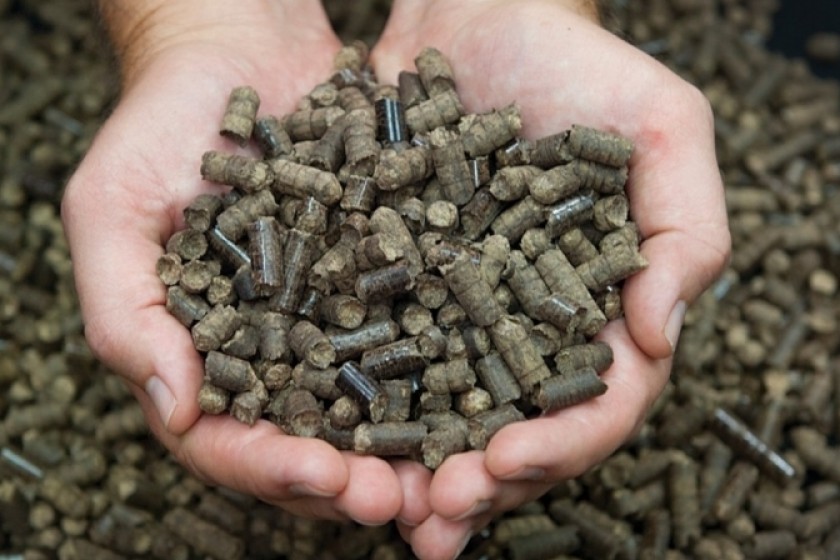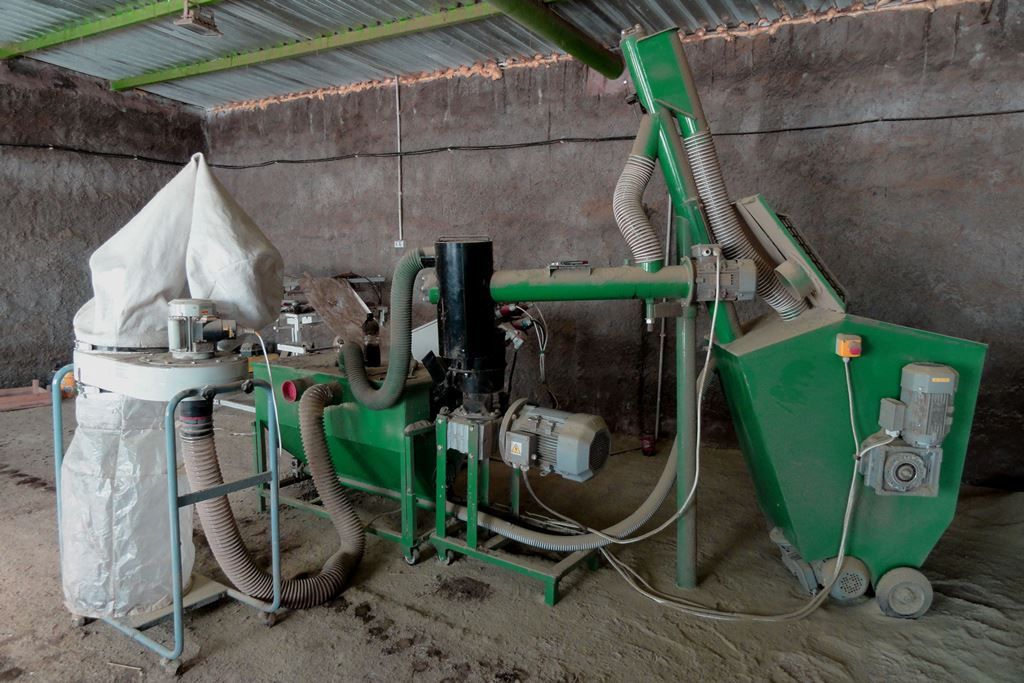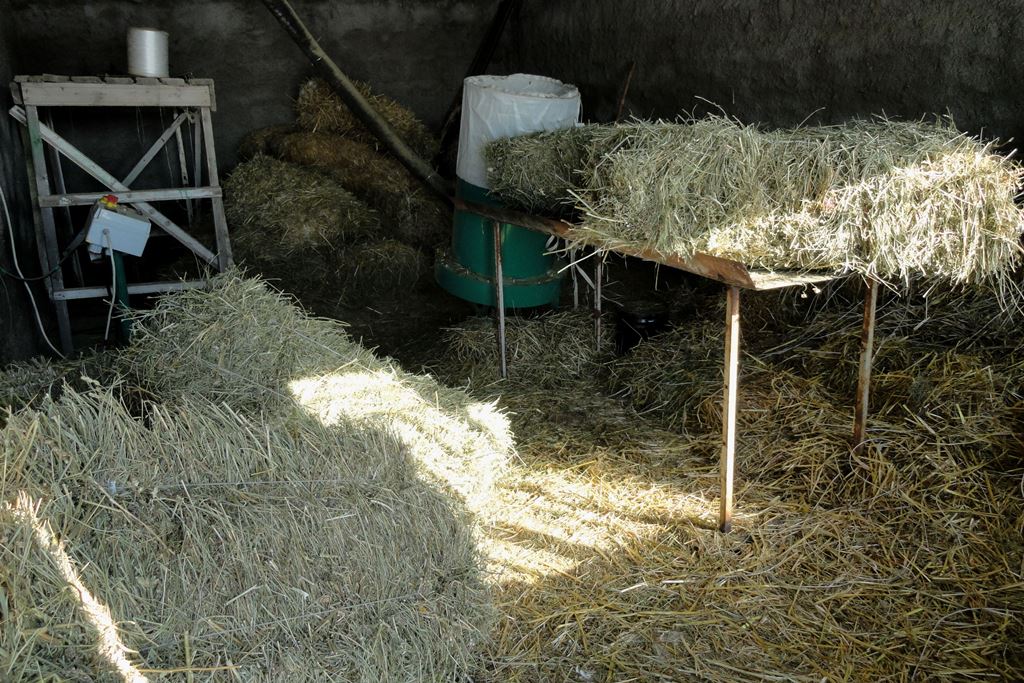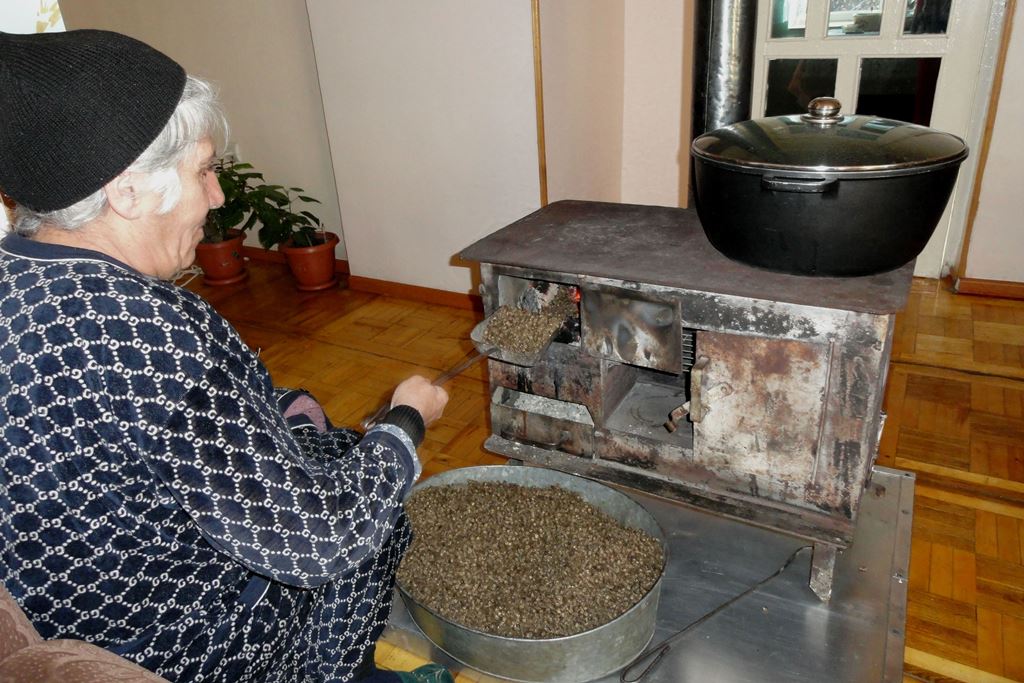
Small Village in Armenia: Turning Biological Waste into Fuel Pellets
The village of Basen, in Armenia’s Shirak province, is leading the way in terms of coming up with innovative technical solutions to reuse biological waste.
For the past month, such waste has been transformed into pellets for use as fuel.
The technology has been used globally since 1947, especially in Denmark, Austria and Sweden. Basen is the first similar venture in Armenia.
“We struggled for three months before achieving success on our own,” says Basen community mayor Hamlet Petrosyan. The experimental unit in Basen is small. Gurgen Petrosyan, who heads the Basen Community Development Foundation (BCDF), is now looking for assistance to enlarge capacity.

“We were able to start pellet production with assistance from the U.N.’s Global Ecological Fund, with a grant of $44,600. Our contribution was the building, with a value of some $17,000. The community invested a similar amount. So did the Arot Consumers’ Production Cooperative. We started preliminary work in September. Our first product was realized in late December,” says Gurgen Petrosyan.

The cost of the entire project, designed to reduce poverty and comprehensively manage soil and water resources, is $58,100.
With savings of $4,460 from the U.N. grant, the BCDF plans to purchase a 3-4 kilowatt photovoltaic system to generate electricity to produce the pellets.

“We are now using 250 kilowatts to produce one ton of pellets. The new photovoltaic system will reduce the electricity cost. We calculate using 40,000 kilowatts of electricity if we work six hours daily. The new system will reduce our costs several fold,” says Gurgen Petrosyan.

Basen residents have decided to use straw as the raw material to produce pellets, even though they could use any vegetable matter. Petrosyan says leaves, animal feed remnants or even barnyard waste can be used.
Some villagers collect straw left over from wheat and barley harvests for animal feed. Others just leave the straw on the field as fertilizer. Many just burn the waste. Using farm waste to make pellets would cut down on field fires and cutting down trees to use as fuel would become a thing of the past.
“Burning the straw is bad for the environment in terms of air pollution. It also burns away the rich topsoil. Plants that spread by seed transfer are also damaged. Habitat for small animals is also wiped out,” says Gurgen Petrosyan.
Basen has 1,800 hectares of cultivable land. Most of it is farmed. The crop was good last year according to the mayor.
“Our villagers know about the project. But since there was no sample results, they couldn’t figure out what they would get in the end for their investment of straw, we didn’t have enough to begin production with,” says Basen Mayor Hamlet Petrosyan.
In one month, more than ten tons of pellets have been produced and sold. The capacity of the machine now in use is 200 kilograms. It’s now working at around half capacity. If they can attract orders for the entire year, the unit can start producing more.
Three families in Basen decided to heat their homes with the new pellets this winter. Some orders have been placed by people in Yerevan. Heating businesses have also expressed an interest in the new product.

“We set about heating the kindergarten with pellets this year,” says the Basen mayor. “Thus, we purchased a $1,000 stove, made especially to burn pellets, from Russia. The stoves commonly used in rural homes aren’t efficient. The pellet stoves are great. They don’t have to be continually tended to keep the fire burning. The pellet stoves do it automatically. They can produce a minimum temperature of +20c.”
The price for one kilogram of pellets is 50 AMD, if the straw is purchased locally. It’s then sold in sacks, also made on the spot.
The straw is first pulverized and then taken by conveyer belt for final processing into pellets.
Basen, with its 460 households, is regarded a leader, in the province and the country, in employing new technologies to solve basic problems.
“Should we freeze if we don’t have heating oil? Must we burn dung forever if we don’t have gas? We have to start using our resources. Most importantly, we have the brainpower,” jokes Mayor Petrosyan.
Basen started using solar power to heat the community’s kindergarten and grow vegetables in 2013.
“Back then, we weren’t sure if residents would use the technology on an individual level. Now, thirty houses have installed solar water systems and others want the system as well. I see the same future for the pellets. This winter three families are using pellets to heat their homes, and I’m certain that number will increase next year,” says the Basen mayor.
He tells me that there are plans to set up wind-powered generators in the village and to install solar panels on a grand scale.
“We’re in the study phase right now. We’ve sent data regarding local winds, sunlight duration, etc. If the response is positive, Basen will surely invest in cutting edge technology.”
Top photo: vdeltafuel.com
 Videos
Videos Photos
Photos
Write a comment